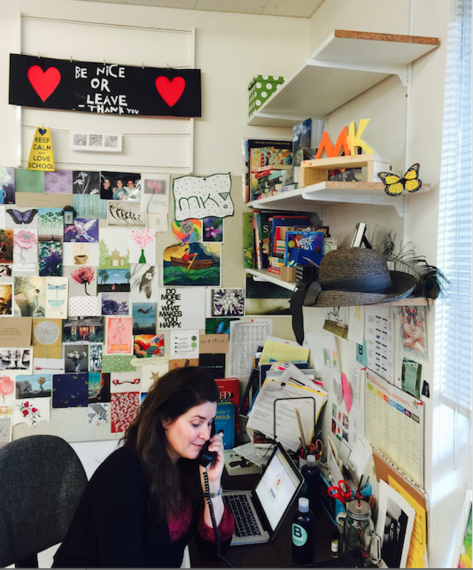Are you the kind of parent who immediately goes on the defensive when a teacher raises a concern about your child? Do you find yourself implicitly (or explicitly) challenging the teacher to "prove it"? Maybe the teacher's observation about your son does not sound like him. Perhaps you have even heard him complain about how unfair or boring that teacher is. You might feel personally attacked when a teacher mentions anything negative about your child or the thought of a "tough" conversation makes you desperate to find a way to dismiss the concern.
If you genuinely want to support your child's experience in school, you might want to rethink your response. As a teacher, I am often in situations where I internally debate whether or not to share a concern about a child with the parent(s). It may be an observation about a difficulty to control impulses, a need to be the class clown, or various other dishonest, disrespectful or exclusive behaviors -- the kinds of things that can impact the class, but primarily hurt the child's academic and/ or social life. Academic struggles are easier to document, and therefore, slightly easier to report, but those issues can unleash defensiveness as well.
Before I schedule a call or meeting with parents, I consider the following: is the parent likely to work with me to support the child? Or are they likely launch a spirited defense of the child? Truthfully, there are times when I opt to avoid difficult conversations if I know the parents are going to fight my concerns. Confrontational relationships with parents are stressful and draining. Teachers are faced with many competing demands. If I sense investment in working with a particular parent will be unproductive, I will prioritize other, more productive work. More important, however, is what I have learned after twenty-five years in the classroom: engaging in these combative conversations is not good for teachers and parents, but far worse for the child.
Full disclosure: the strangest thing happens when a parent resists, dismisses or questions my concern: I go into " defense attorney" mode. In order to justify my concern, I become more interested in gathering evidence to substantiate it than simply sustaining my usual focus on positive ways to improve the student's progress. It actually took me years to realize (and admit) the consistency of this response. Even more difficult to confess is that despite my awareness, this reaction is particularly difficult to avoid. And as it turns out, I am not alone. Conversations with my colleagues reveal this "cycle of defense" is more common than not and is a source of embarrassment to many of us. Obviously, none of us want to be aiming our energy at documenting our students' flaws, but that doesn't stop it from happening.
Most parents will say they want the truth about their child but many struggle to invite it. If you want teachers to take on the untidy aspects of your child's experience at school, it is helpful to communicate permission to do that through your conversations and interactions. Curiosity and inquiry are natural when teachers make observations about your child. Don't hesitate to ask for context or examples so that you can understand the situation better, particularly if it does not does not align with your child's experience at home. But there is a fine line between this and putting the teacher on trial.
One way for parents to build trust and relay a positive partnering tone is to thank the teacher for the difficult call or meeting. Trust me: nothing but a concern for your child would motivate a teacher to embrace the difficulties of relaying a concern. Asking how you can support a positive shift from home will also go a long way to establish that you are interested in what the teacher has to say. Most teachers will be profoundly appreciative and go to great lengths to partner with parents if the parents communicate that they want to be on the solution team. And naturally, the child is the primary benefactor of this kind of cooperation.
Let's face it, difficult parent-teacher conversations, even in the best of circumstances, are complicated for both the parent and the teacher. It requires energy and risk for teachers to share less-than-positive news about your child. And although teachers anticipate potential parent resistance, and even understand it, that understanding does not make these talks any easier to have. Bravely inviting teachers to be honest about your child will make it more likely that they will address, rather than ignore, any challenges. Considering that these conversations can lead to transformational change for your child, it makes the temporary discomfort worth it. Anyway, the hard conversations are important investments towards later, more pleasant ones: celebrating your child's growth and improvement.
